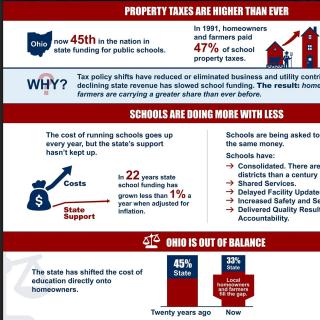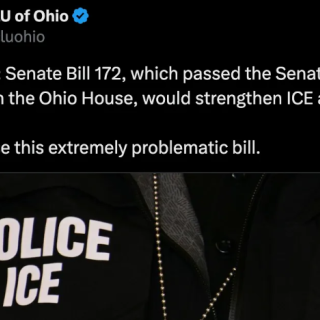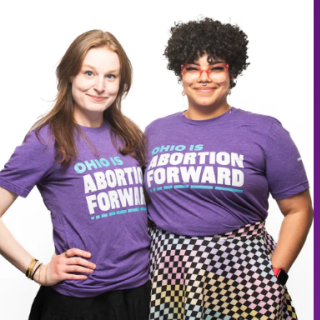Advertisement
A politically diverse coalition of concerned citizens and community leaders wants to make a foundational change to how Columbus City Council represents the people of Columbus. “We’re fighting to give every community a voice, end corruption in Columbus, and bring accountability back to city government by creating districts in our City Council,” said Represent Columbus co-chair Whitney Smith at a press conference outside City Hall Monday afternoon.
Represent Columbus is collecting petition signatures for a city charter amendment to be placed on the May 2016 primary ballot. The initiative would have ten City Council members elected by districts in which they live. Three at-large Council members would be elected to ensure that city-wide issues are addressed.
“It’s time to return government to the people of Columbus,” said attorney Bill Todd, former Republican mayoral candidate. “It’s time to create transparency, and a system that allows everyone in the neighborhoods to be heard.
“We have not changed city government in Columbus for nearly a hundred years,” Todd said. “A hundred years ago, Columbus was ten times smaller than it is today. It had one-fourth of the population. But we have the same number of City Council members. We had seven in 1916, and if we don’t do something with this coalition, we’re going to have seven in 2016.”
Of the 50 most populous U.S. cities, 48 elect all or part of their council members based on geographical districts. 21of these cities have a combination of district and at-large representation, as is being proposed for Columbus.
“In Columbus we’re proud of the fact that we’re very diverse,” said Franklin County Sheriff and Democratic mayoral candidate Zach Scott. “But for some reason our City Council doesn’t seem very diverse. They’re hand-picked, told how they’re going to vote, and they continue with politics as usual at City Hall.”
“Our city has the second largest Somali population in the country,” said Burhan Ahmed, director of the Center for Somali American Engagement. “We don’t feel like we are getting representation.”
The current City Council has not been engaged with the nearly 50,000 Somali residents in Columbus, Ahmed said. “We are facing a lot of challenges with jobs and housing.”
Represent Columbus deputy director Will Petrik ran for City Council in the May 2015 primary. “One of the things I heard from people across the city was ‘We don’t feel like we’re really being heard,’” Pertrik said. “We don’t feel like our neighborhood has a seat at the table.”
The democratic process is broken, both locally and nationally, Petrik said. “Money is running the show. When I ran for office, I asked how much money I needed to raise to run city-wide. I was told that if I didn’t raise $100,000, I wouldn’t have a chance on this city.
“How many people can emerge from the South Side, from the Hilltop, from Northland, from Linden, and raise $100,000?” Petrik asked. “It’s all pay-to-play, and it’s not fair. There are voices and leaders in every neighborhood who need to be a part of the conversation about the city’s future.”
The coalition needs to collect 10,000 valid signatures by the end of November for the initiative to be placed on the May 2016 ballot.







